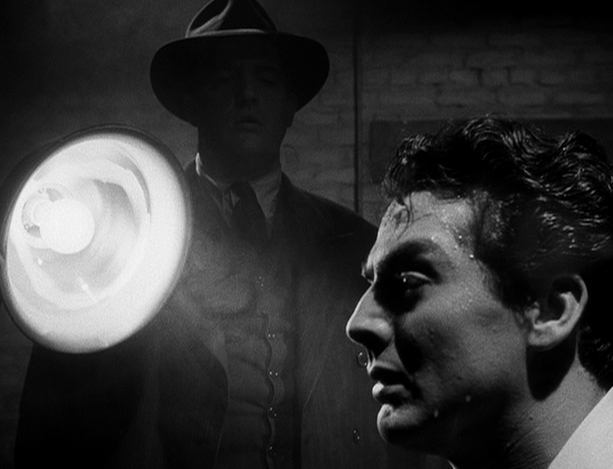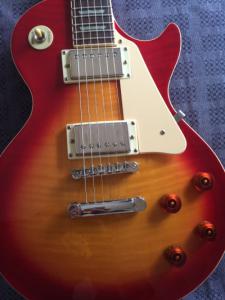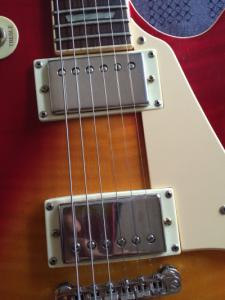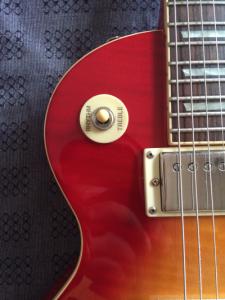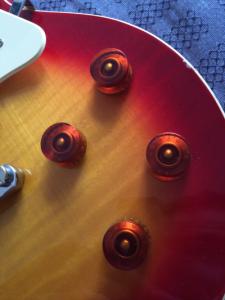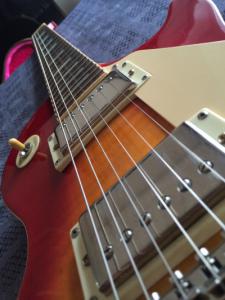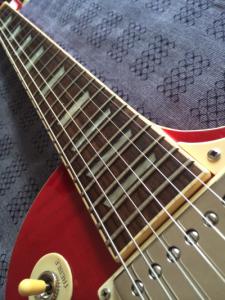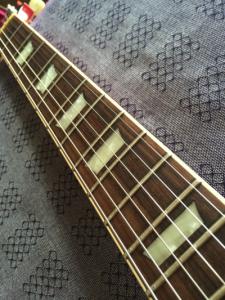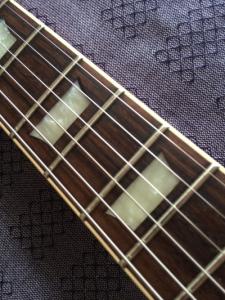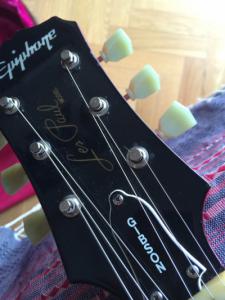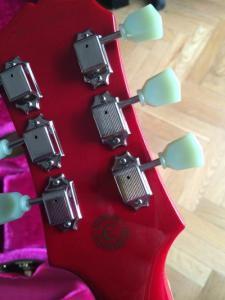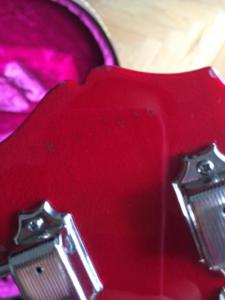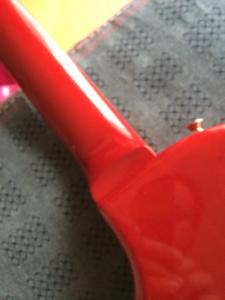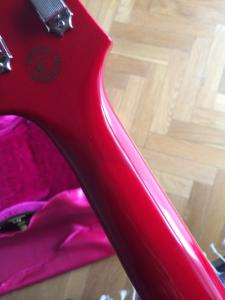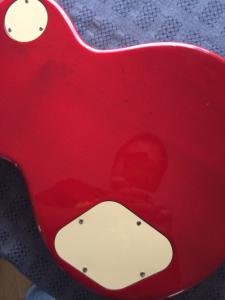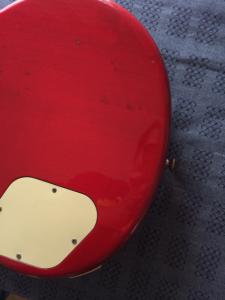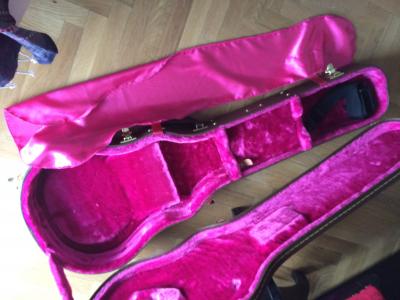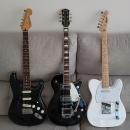El hilo de las Epi checas ( planta Musico-Delica, Bohemia)

OFERTAS Ver todas
-
-23%Harley Benton JAMster Guitar
-
-11%Ibanez AE340FMH-MHS
-
KRK Rokit RP5 G5

...Y aquí, tercero por la derecha, Petr, el que empezó el cotarro.... http://news.thinkns.com/author/garyb/

#975 Yo diría que es él, sí, es él.
Uf, a esta gente, ponerse a hacer guitarritas eléctricas en serie debió parecerles caer muy bajo. Es como ponerle a un cocinero con estrellas Michelin a hacer hamburguesas para Mac Donald's. Aunque, claro, las hará con tal esmero, por puro amor propio, que saldrán estupendas. Y así nuestras checas...
Uf, a esta gente, ponerse a hacer guitarritas eléctricas en serie debió parecerles caer muy bajo. Es como ponerle a un cocinero con estrellas Michelin a hacer hamburguesas para Mac Donald's. Aunque, claro, las hará con tal esmero, por puro amor propio, que saldrán estupendas. Y así nuestras checas...


Seguimos tirando del hilo.......Nombre y apellidos: Pedazo de historia!!!!! Hay que hablar con alguno de estos tíos!!!! Petr Vykydal , Vlada Vrsansky http://www.nytimes.com/1996/12/02/business/worldbusiness/02iht-smallbiz.t.html
For decades, Delicia had made accordions, harmonicas and, more recently, electric guitars for export to both East and West. But the lucrative Latin American accordion market evaporated in the early 1970s, and markets in the former Communist bloc collapsed in 1990.
Mr. Vykydal, an energetic young man in a plaid shirt and yellow silk tie, seems to never stop moving. He had his first job at Delicia when he was a new graduate of the Prague School of Economics, just a few months before the "Velvet Revolution" of 1989 that brought the Communists down. After the fall of communism, Delicia lost sales, workers and money, and Mr. Vykydal left in 1991 to spend a couple of years selling surplus Czech army parachutes to Indonesia's special forces.
When Delicia was put up for privatization in 1993, he joined a half-dozen former colleagues in making a bid for the company. They beat out the old management, but when they got the keys to the factory gate, the company was in crisis. They had no cash flow, no treasury, almost no manufacturing program (their previous U.S. partner, Kramer electric guitars, had gone bankrupt in 1991), and a month's wages for 500 employees were due in 14 days.
"The former management had spent all the money to 'improve' our situation here," Mr. Vykydal said.
In two months, he estimated, the old bosses had shoveled out $500,000 for such things as a 70-year supply of accordion fabric and for advertising in markets where they did not sell any products. But by pressuring customers to pay up, Mr. Vykydal and his partners met the first payroll and for the next eight months borrowed heavily to pay underemployed craftsmen until they had lined up a new guitar production contract.
Today, the persistence seems to have paid off, and Delicia has made a remarkable turnaround.
On the lower floors of the five-story factory, the scent of freshly cut wood floats among the sounds of jigsaws and planers making parts for guitars and accordions. Upstairs, dozens of women are at work assembling and gluing together the complex accordions or painting and polishing electric guitars.
Mr. Vykydal will not disclose the privately held company's profits, but he said revenue had nearly doubled in three years, to 200 million koruny ($7.5 million). Delicia now makes electric guitars for Hohner of Germany and makes the Gibson "Les Paul" guitar — a perennial favorite of rock stars — for Epiphone. Last year, production began on Stuart Spector basses, the favorite of such musicians as Sting, Adam Clayton of the Irish band U2 and Gene Simmons of the rock group Kiss. Contracts with more guitar makers are in the works.
Delicia even has an research and development laboratory where a handful of experienced accordionists are creating an accordion-like instrument to play Tejano music — a mix of polka and Mexican rhythms popular in Texas and the Southwestern United States.
Mr. Vykydal has cut about 100 employees, mostly office staff, but the Czech economic boom — unemployment is less than 1 percent in the region — makes it tough to find skilled workers who will stick with an intricate, demanding job in a small town.
One new recruit is 18-year-old Vlada Vrsansky, a shy pony-tailed aspiring blues musician. "It's great," he said of working in the guitar factory. Mr. Vykydal said some of his best guitar makers were young guitar players, and he hoped to attract more. "I need these workers by the end of the year," he said. "Already we are losing our potential customers, and if we don't make these guitars for them they'll go to Korea or other places."
The only drawback to his new job, Mr. Vykydal said, is that he has not picked up a guitar himself in years. "I'd like to," he said, "but it's just not a realistic wish."
For decades, Delicia had made accordions, harmonicas and, more recently, electric guitars for export to both East and West. But the lucrative Latin American accordion market evaporated in the early 1970s, and markets in the former Communist bloc collapsed in 1990.
Mr. Vykydal, an energetic young man in a plaid shirt and yellow silk tie, seems to never stop moving. He had his first job at Delicia when he was a new graduate of the Prague School of Economics, just a few months before the "Velvet Revolution" of 1989 that brought the Communists down. After the fall of communism, Delicia lost sales, workers and money, and Mr. Vykydal left in 1991 to spend a couple of years selling surplus Czech army parachutes to Indonesia's special forces.
When Delicia was put up for privatization in 1993, he joined a half-dozen former colleagues in making a bid for the company. They beat out the old management, but when they got the keys to the factory gate, the company was in crisis. They had no cash flow, no treasury, almost no manufacturing program (their previous U.S. partner, Kramer electric guitars, had gone bankrupt in 1991), and a month's wages for 500 employees were due in 14 days.
"The former management had spent all the money to 'improve' our situation here," Mr. Vykydal said.
In two months, he estimated, the old bosses had shoveled out $500,000 for such things as a 70-year supply of accordion fabric and for advertising in markets where they did not sell any products. But by pressuring customers to pay up, Mr. Vykydal and his partners met the first payroll and for the next eight months borrowed heavily to pay underemployed craftsmen until they had lined up a new guitar production contract.
Today, the persistence seems to have paid off, and Delicia has made a remarkable turnaround.
On the lower floors of the five-story factory, the scent of freshly cut wood floats among the sounds of jigsaws and planers making parts for guitars and accordions. Upstairs, dozens of women are at work assembling and gluing together the complex accordions or painting and polishing electric guitars.
Mr. Vykydal will not disclose the privately held company's profits, but he said revenue had nearly doubled in three years, to 200 million koruny ($7.5 million). Delicia now makes electric guitars for Hohner of Germany and makes the Gibson "Les Paul" guitar — a perennial favorite of rock stars — for Epiphone. Last year, production began on Stuart Spector basses, the favorite of such musicians as Sting, Adam Clayton of the Irish band U2 and Gene Simmons of the rock group Kiss. Contracts with more guitar makers are in the works.
Delicia even has an research and development laboratory where a handful of experienced accordionists are creating an accordion-like instrument to play Tejano music — a mix of polka and Mexican rhythms popular in Texas and the Southwestern United States.
Mr. Vykydal has cut about 100 employees, mostly office staff, but the Czech economic boom — unemployment is less than 1 percent in the region — makes it tough to find skilled workers who will stick with an intricate, demanding job in a small town.
One new recruit is 18-year-old Vlada Vrsansky, a shy pony-tailed aspiring blues musician. "It's great," he said of working in the guitar factory. Mr. Vykydal said some of his best guitar makers were young guitar players, and he hoped to attract more. "I need these workers by the end of the year," he said. "Already we are losing our potential customers, and if we don't make these guitars for them they'll go to Korea or other places."
The only drawback to his new job, Mr. Vykydal said, is that he has not picked up a guitar himself in years. "I'd like to," he said, "but it's just not a realistic wish."


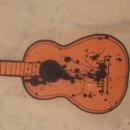

Buenas a todos, llevo relativamente poco tiempo en el foro, no obstante llevo años siguiendo este hilo, justo desde que adquirí una de estas guitarras tan especiales a las cuales se hace referencia en este hilo..., poco sabía de ella cuando la compré de segunda mano en un pueblo perdido de Guadalajara, sólo que sonaba como las guitarras de los discos de Led Zeppelin!! Gracias a este hilo comprendí lo que adquirí un poco por casualidad..., lo que nunca pensé es que tendría que recurrír a este hilo para venderla, ya que llevo un tiempo con ella en venta... y sinceramente los prejuicios de la gente con el tema de las palas.. hace que no se valore... , no quería recurrir a escribir en este hilo salvo para contar mi experiencia (que lo haré más adelante) con esta magnífica guitarra, pero el estilo musical que hago (shoegaze) no es muy amigo de Les Pauls.. salvo por la maqueta que grabé, en la que si la usé!! os paso unas fotos, externas... no me atrevo a sacarle las pastillas, sé de buena tinta que es una Checa.. !! Si andais interesados, o conoceis a alguien que lo pudiera estar.. mandadme unos privados.., os pego el link de mi anuncio.. y como comentado..os paso unas fotillos...
https://www.guitarristas.info/anuncios/epiphone-les-paul-standard-rep-checa-cambiada/353306
grcs!!
https://www.guitarristas.info/anuncios/epiphone-les-paul-standard-rep-checa-cambiada/353306
grcs!!

Suerte con la venta, lástima que sólo la conozcamos para irse 
Lo único es que si tiene todo el hardware y electrónica de origen (lo flojito de este instrumento) vas a tenerlo difícil para sacar 450€... la gente da por las checas lo que daría por cualquier otra Standard, y éste es aprox. el precio que tiene una Standard nuevecita. Lo que voy diciendo últimamente; no es que no lo valga, es que no lo pagan.
A propósito, me apunto la web de tu banda para daros una escucha, me mola el rollito shoegaze.

Lo único es que si tiene todo el hardware y electrónica de origen (lo flojito de este instrumento) vas a tenerlo difícil para sacar 450€... la gente da por las checas lo que daría por cualquier otra Standard, y éste es aprox. el precio que tiene una Standard nuevecita. Lo que voy diciendo últimamente; no es que no lo valga, es que no lo pagan.
A propósito, me apunto la web de tu banda para daros una escucha, me mola el rollito shoegaze.
Nuevo post
Regístrate o identifícate para poder postear en este hilo


